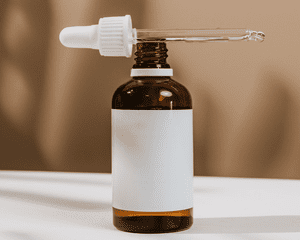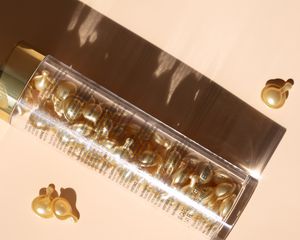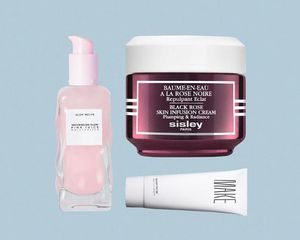:max_bytes(150000):strip_icc()/vitamincalternatives-30ad930689b04073b59d5b29153e948c.png)
Stocksy
Vitamin C has become a recommended staple in an effective skincare routine—and for good reason. "The ingredient helps to brighten the skin, promote collagen production, and even fight free radicals," dermatologist Mona Gohara, MD, tells us. But although it presents itself as a miracle worker, it isn't always so great for those with sensitive skin. "While vitamin C is a great ingredient, and it is generally pretty safe and well-tolerated, those with sensitive skin may experience some irritation using products that contain the antioxidant," says Dr. Gohara.
The good news is that other ingredients feature many of the same benefits as vitamin C, but offer a more gentle touch. We asked Dr. Gohara and fellow skincare experts Loretta Ciraldo, MD, and Michelle Ranavat to offer their insights on vitamin C alternatives for sensitive skin. Keep reading to learn more.
Meet the Expert
- Loretta Ciraldo, MD, FAAD, a Miami-based board-certified dermatologist. She is also the founder of Dr. Loretta skincare.
- Michelle Ranavat is the founder of Ranavat Botanics and taps into ancient ayurvedic traditions to inform her formulas.
- Mona Gohara, MD, is a board-certified dermatologist and associate clinical professor of dermatology at Yale University.
Niacinamide
If you're looking to replace vitamin C with something milder, studies show that niacinamide is an excellent, gentle alternative with similar skin benefits. "Both vitamin C and niacinamide decrease damage from environmental factors, they can improve fine lines and wrinkles, decrease hyperpigmentation, and increase collagen production. However, niacinamide is the gentler of the two and is less likely to cause irritation, especially to those with more sensitive skin," says Dr. Gohara.
In Youth to the People's Superfood Skin Drip Smooth + Glow Barrier Serum with Kale + Niacinamide, the powerful ingredient works to visibly even skin tone. Dr. Gohara recommends SkinMedica Lytera 2.0 Pigment Correcting Serum. "This serum is a great vitamin C alternative as it helps to prevent the appearance of skin discoloration while visibly balancing the appearance of skin tone."
Byrdie Tip
Although niacinamide is less likely to clash with other ingredients in your skincare routine, you should still introduce it gradually into your regimen and begin with the lowest percentage (typically 10 percent) to build your skin tolerance.
Indian Ginseng
Research shows that one of the major benefits of incorporating vitamin C into your skincare regimen is its ability to fight UV damage. "In this screen-oriented 21st century, we dermatologists are now starting to focus on keeping skin protected from artificial visible light (AVL) emitted by digital screens," says Dr. Ciraldo. Not only does Indian ginseng (aka ashwagandha, winter cherry, or withania somnifera extract) protect our skin from digital pollution, but it also boosts cellular energy and vibrancy of skin and restores skin vitality, she adds.
Carotenoids
"Saffron and turmeric are rich in carotenoids—a botanical compound that helps brighten the skin, reduce inflammation, and provides photo-protection," explains Ranavat. "I prefer using carotenoids to vitamin C because of all the added benefits with fewer potential side effects."
Another noteworthy benefit of carotenoids that Ranavat mentions is their stability. "Unlike vitamin C, which can quickly oxidize, carotenoids stay active and effective for much longer," she notes, meaning your favorite carotenoid-infused products—like Ranavat's Radiant Rani Saffron Brightening Dark Spot Treatment—also boasts a longer shelf life.
Key Takeaways
- Niacinamide is a mild and effective alternative to vitamin C, and it can be found in different skincare formulations like serums, moisturizers, and skin treatments.
- Indian Ginseng can protect the skin from digital pollution emitted by our phones and laptops.
- Carotenoids like saffron and turmeric offer similar effects of vitamin C while being more gentle on the skin. While topical vitamin C formulations can quickly oxidize and lose their efficacy, carotenoids don't have that issue.
Viniferine
Viniferine—an ingredient exclusively extracted by skincare brand Caudalie from grapevine sap—aims to lighten dark spots, acne scars, and hyperpigmentation. According to Caudalie, it does all of these things much more effectively than vitamin C. And while we adore the brand's Vinoperfect Radiance Serum, its Vinoperfect Instant Brightening Moisturizer also includes niacinamide, so you get double the bang for your buck.
Alpha Arbutin
Alpha arbutin is another powerhouse when it comes to fading dark spots and correcting skin tone. Like vitamin C, it's an effective brightening agent, but because it has a sustained release, it's much gentler on the skin and doesn't present as high of a risk of irritation. In The Ordinary's iteration, the alpha arbutin is supported with a form of hyaluronic acid for enhanced delivery and efficacy.




